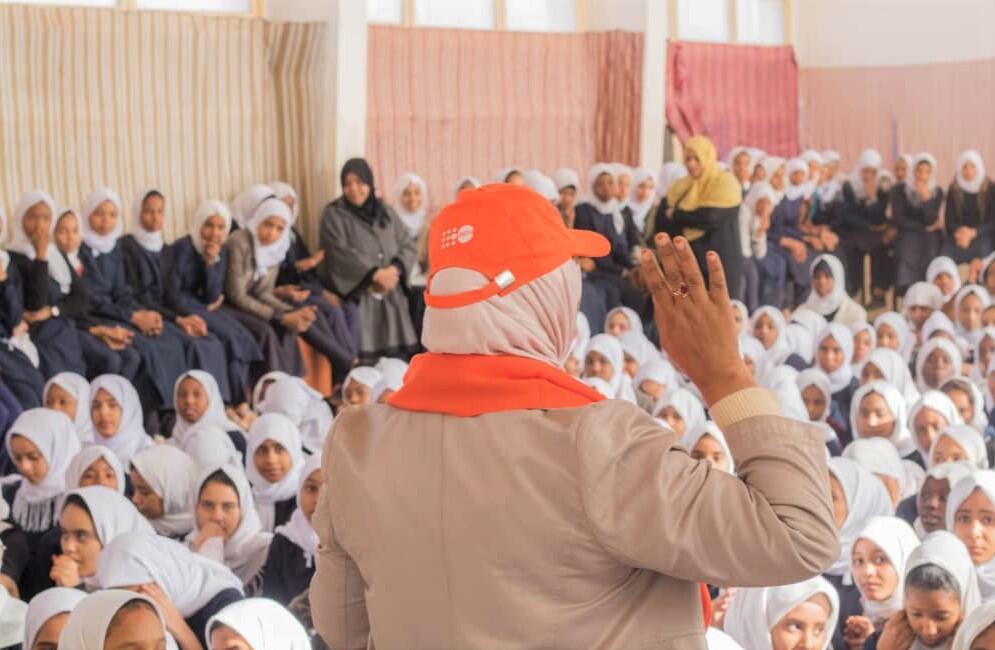25 Nov 2020 (Tripoli) As the world marks the International Day for the Elimination of Violence against Women and beginning of the 16 days of activism against Gender Based Violence (GBV) today, the United Nations Population Fund (UNFPA) together with the Ministry of Social Affairs and partners is raising the issue especially focusing on this year’s theme of changes of COVID-19 pandemic for the most vulnerable in Libya under the slogan “we all have a role to play.”
A 16 Days of Activism campaign has been organized to advocate and raise awareness on gender-based violence especially against women and girls through a pandemic lens, and the increased challenges of livelihood conditions, loss of income and access to health care which is affecting vulnerable groups including migrants and IDPs.
“The 16 days of activism this year come in a very critical time. Many of us have been affected directly or indirectly by COVID-19. The pandemic compounds the existing gender inequalities as lockdowns, curfews, restrictions on movement along with loss of income are sources of increased risks of gender-based violence. We at UNFPA Libya are proud to see the commitment of Libyan government and the local civil society organizations to bring the public attention to the cause during this global pandemic to ensure that women and girls remain in the heart of our response.” said Asr Toson - UNFPA Country Representative in Libya.
Throughout the Campaign, UNFPA, and its partners will be organizing different activities with strong commitments and participation from the community that include social media messaging, video competition, production of a different media materials, open radio days and open events at the women and girls’ safe spaces to raise awareness on gender-based violence.
UNFPA Libya has initiated various projects to eliminate violence against women in Libya especially focusing on migrants, refugees and host communities. It has launched a helpline “1417” to provide psychosocial support, legal counseling and referral to the immediate health services for the people in need. Similarly, UNFPA Women and Girls Safe Spaces in Tripoli, Sabha and Benghazi provide remote and in-person services to women and girls through awareness sessions on gender-related topics and also provide livelihood and life skills training. UNFPA is also building the capacities of the service providers in collaboration with line ministries involved to ensure GBV multi-sectoral services provided to the survivors. These interventions are possible thanks to the generous support of donors including the European Union Trust Find (EUTF), the Canadian, Italian, French and Danish governments. The UNFPA’s implementing partners for GBV are LibAid, Albayan, Amazonat, Women Union, Huna Libya, Psychosocial Support Team (PSS) and IMC.


